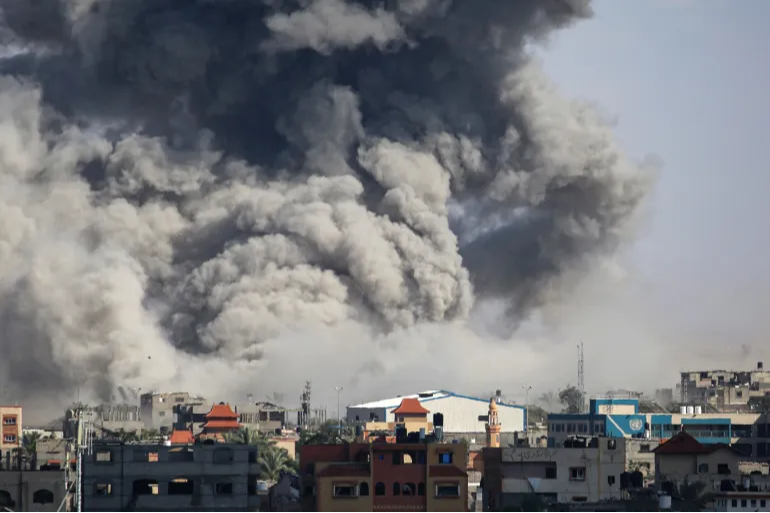
Doha, May 14 (RHC)-- Israel’s military operation in Gaza’s southern city of Rafah has set ceasefire negotiations with Hamas “backward”, mediator Qatar has said, adding that the talks have lost steam.
“Especially in the past few weeks, we have seen some momentum building but unfortunately things didn’t move in the right direction and right now we are on a status of almost a stalemate,” Prime Minister Sheikh Mohammed bin Abdulrahman bin Jassim Al Thani told the Qatar Economic Forum in Doha on Tuesday.
“Of course, what happened with Rafah has set us backward.” Qatar has been engaged in months of mediation between Israel and the Palestinian group Hamas, along with Egypt and the United States.
On Tuesday morning, Israeli forces pushed deeper into eastern Rafah, entering the neighbourhoods of al-Jnaina, as-Salam and Brazil, as it prepared to expand its military operation.
The Israeli army issued evacuation orders, forcing tens of thousands more Palestinians to flee, despite US warnings against a full-scale assault on the southern city that is crowded with displaced people. Israeli forces were also continuing to operate with extreme force in Jabalia city, Jabalia refugee camp and surrounding areas in northern Gaza.
Israeli tanks, bulldozers and armoured vehicles were surrounding United Nations Relief and Works Agency for Palestine Refugees in the Near East (UNRWA) schools that were turned into shelters for hundreds of displaced families.
An air strike on a residential building to the south of the Nuseirat refugee camp in central Gaza killed at least 14 people, while Israeli fighter jets also attacked a school in the refugee camp where a fire broke out, according to reports.
Sheikh Mohammed said there was no clarity on how to stop the war from the Israeli side. “I don’t think that they are considering this as an option … even when we are talking about the deal and leading to a potential ceasefire,” he said.
Israeli politicians were indicating “by their statements that they will remain there, they will continue the war”, he said, adding that “there is no clarity on what Gaza will look like after this.”
Sheikh Mohammed said the fundamental difference between the two parties was over the release of captives and ending the war. “There is one party that wants to end the war and then talk about the hostages and there is another party who wants the hostages and wants to continue the war,” he said. “As long as there is not any commonality between those two things it won’t get us to a result.”
Israel is determined to press ahead with its offensive on Rafah – considered the last refuge in Gaza, where more than 1.4 million displaced Palestinians were sheltering – in defiance of warnings from the UN and its allies, including its key backer, the US.
Israeli military operations have forced some 150,000 people to flee over the past week to areas devastated by previous attacks.
The displaced were mainly heading towards Khan Younis, in southern Gaza, and Deir el-Balah, in central Gaza. Al Jazeera’s Hind Khoudary said Deir el-Balah was running out of space as people poured in, looking for shelter.

